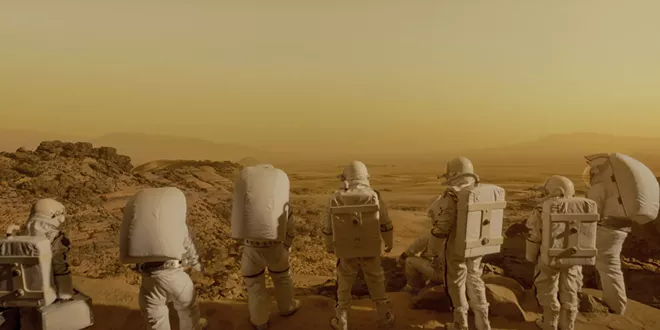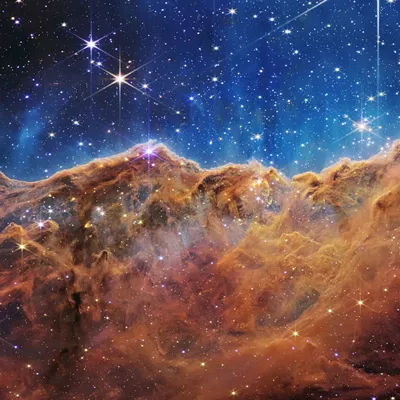I remember gazing up at the sky as a kid and realizing that some of those bright specks of light were especially meaningful. That red one, there, see? That's our alluring neighbor blinking hello in the darkness. Or is it sending a warning?
Humankind has looked to that siren's light for thousands of years, drawn to what may be a lifeless rock by fantastic daydreams of what fate might await there. The Greeks called it Ares, after their god of war and courage. In India it's Mangal, after a Hindu deity of anger and aggression. The Arabic and Chinese names evoke fire or "fire star." In a nod to the Roman god of war, we call it Mars.
If our calendar doesn't show how enthralled we are — "March" and "Tuesday" both originate from names for Mars — all you have to do is look to popular culture to see the planet's enduring ability to capture our imaginations.
While the first thing that comes to mind may be the Mars missions being planned by "Mr. X" and other billionaires who seem fixated on abandoning our human-spoiled planet, the most imaginative minds in science fiction have long offered hope for the red planet, and warnings to heed.
In the 1870s, telescopes revealed what people theorized could be canals built by intelligent life. By 1898, H.G. Wells imagined a Martian invasion of Earth in The War of the Worlds. Orson Welles' Mercury Theatre performed the story via radio in 1938, leading some (though probably nowhere near as many as initially reported) to believe the world was under attack.
In The Martian Chronicles (1950), Ray Bradbury imagined the American colonization of the planet, with indigenous martians succumbing to disease, and mankind self-destructing through nuclear war on Earth. In 1953, Nazi-turned-American rocket scientist Wernher von Braun published The Mars Project in English, detailing how people could get to Mars. His ideas were explored in "Mars and Beyond," a 1957 episode of Disneyland. In 1958, Marvin the Martian's plot to blow up Earth was thwarted onscreen by Bugs Bunny. The sci-fi fascination exploded even more after man made it to space in the 1960s, spurring a wealth of movies, music and more.
It's hard to pinpoint when my infatuation with space began. Maybe it was in 1997, when we saw the Comet Hale-Bopp burning 1,000 times brighter than Halley's Comet. It had last graced Earth's skies more than 4,000 years ago, and will take thousands more to return.
In elementary school I watched movies like Men in Black, Space Jam, Zenon: Girl of the 21st Century, October Sky, Contact (I even wrote a school report on SETI), The Iron Giant, Armageddon, Muppets from Space, Independence Day — OK, come to think of it, was everyone in the '90s *obsessed* with space?
In recent years, I've devoured space books, including The Expanse series, Andy Weir's The Martian, Artemis and Project Hail Mary, and Douglas Adams' Hitchhiker's Guide to the Galaxy series. Then, last week, I realized just how much of my summer pop culture menu has been flavored by Mars.
I watched Apple TV+'s For All Mankind, which imagines the space race getting us to Mars sooner, at the cost of an enduring Cold War. Audible is reading me Kim Stanley Robinson's Red Mars (1992), which explores the likely political arguments we'll have about terraforming the planet and sharing its resources. I'm also reading Light Bringer (July 2023), the latest book in Pierce Brown's Red Rising series, which details the violent struggles to overthrow an oppressive power structure, with the abused "reds" of Mars leading the fight for solar-system-wide equality.
While Mars has always enticed us, and sometimes scared us, maybe it can teach us. Otherwise, somebody on Mars might just look to the sky someday and wonder if the moons of Jupiter actually hold the answer. ♦

























